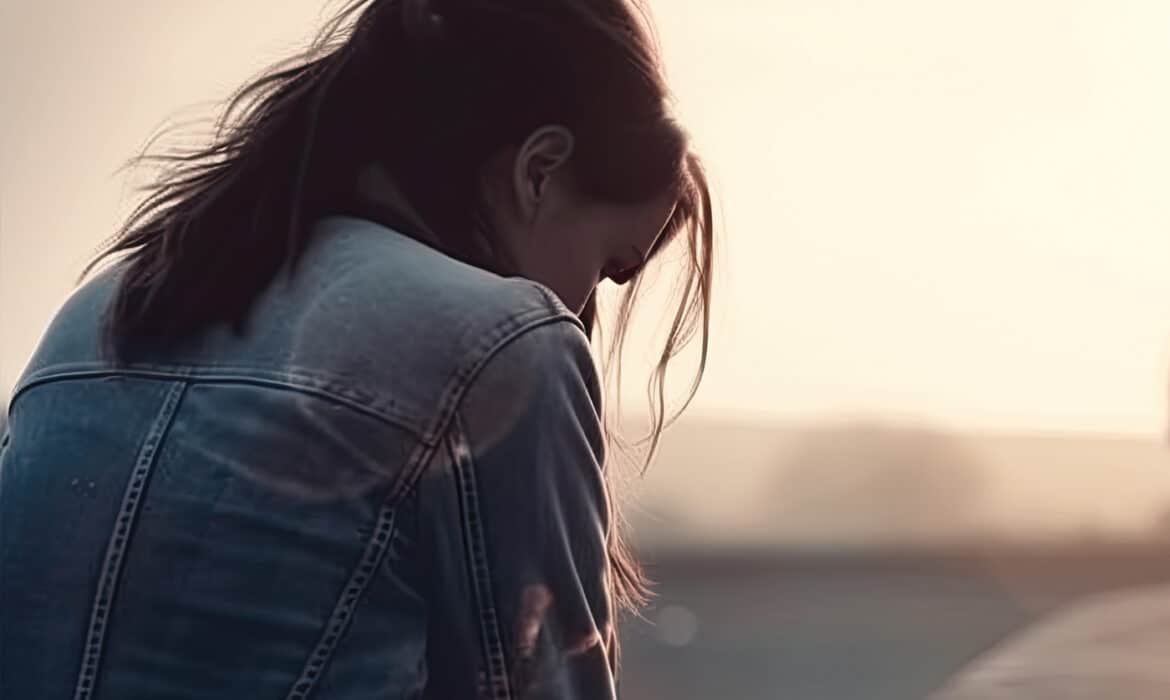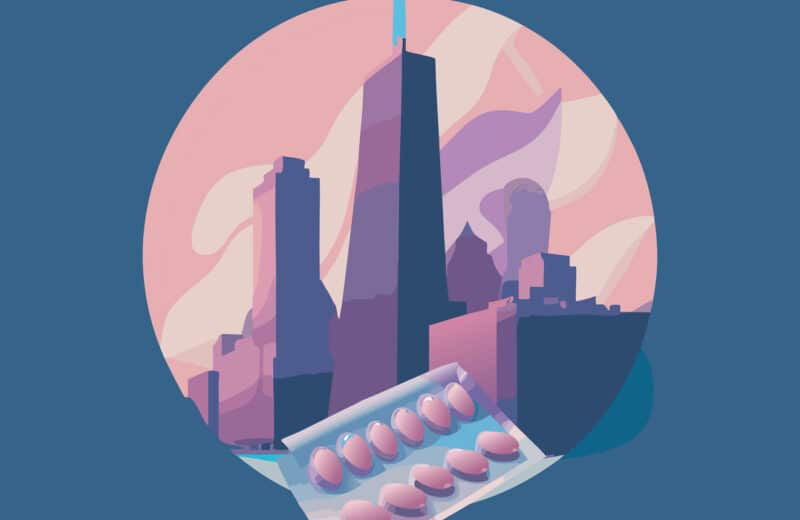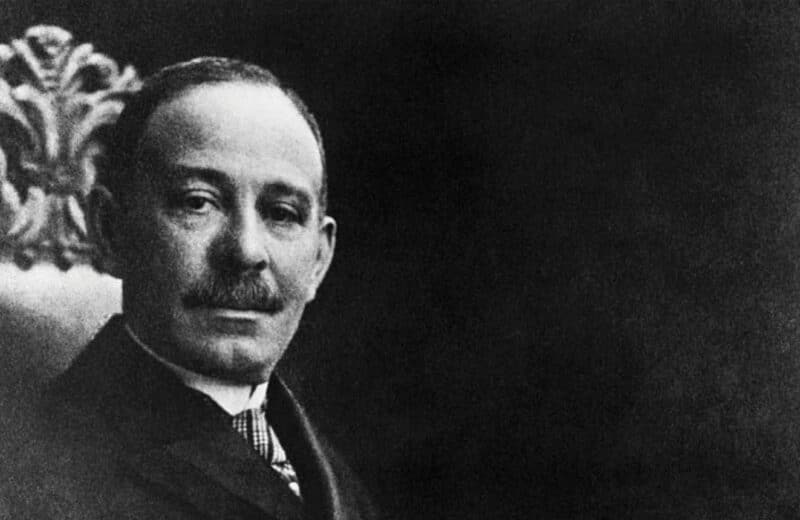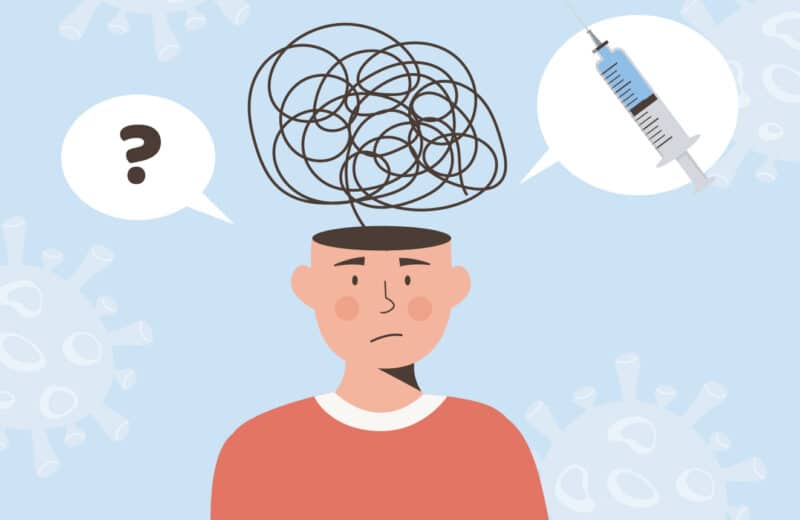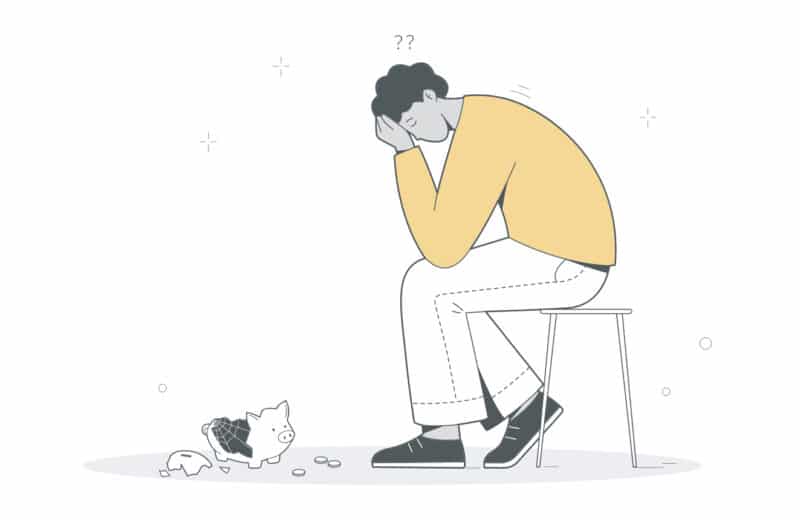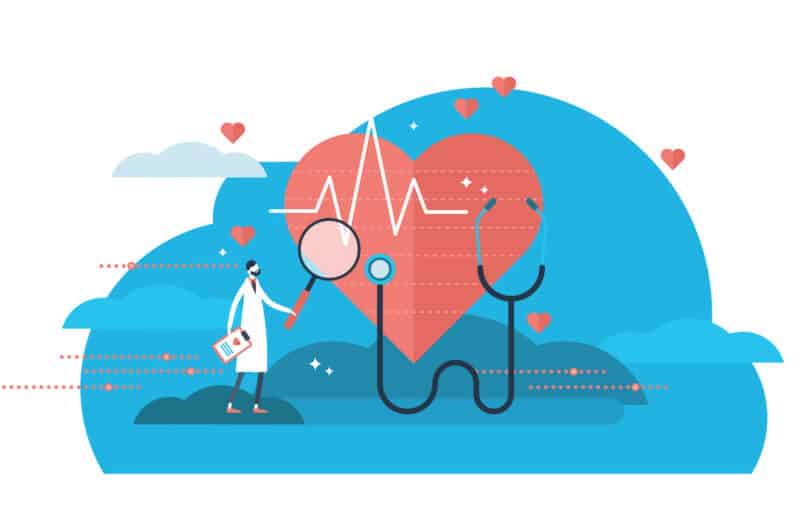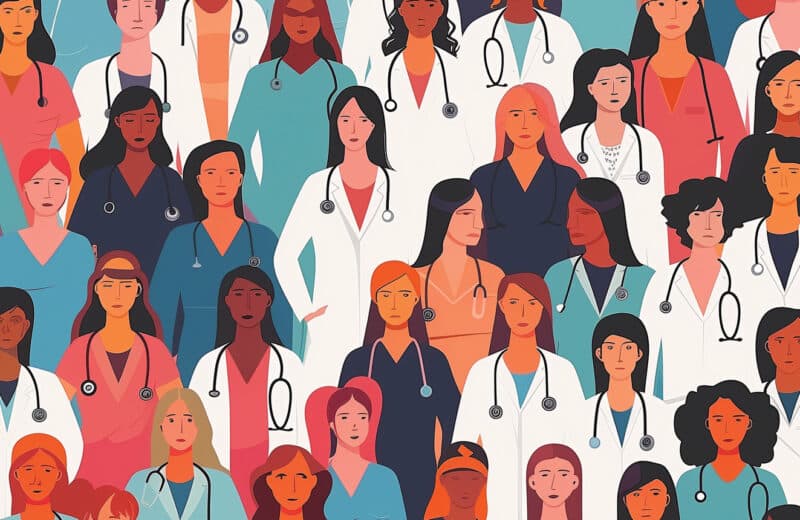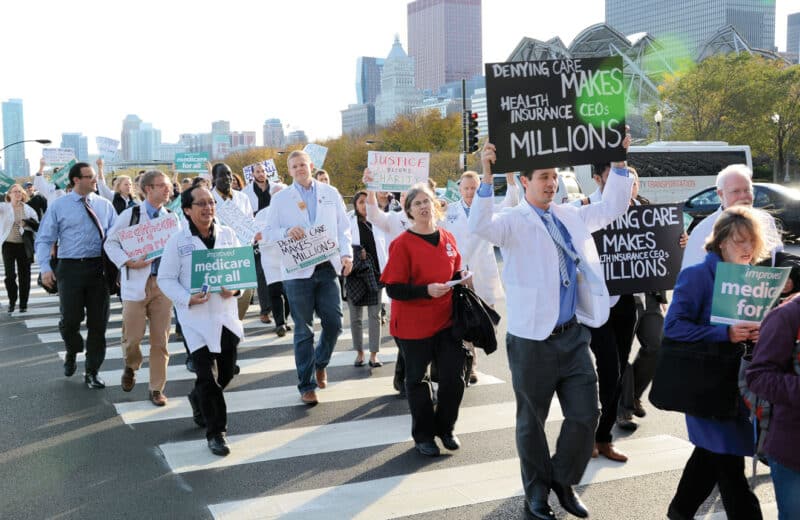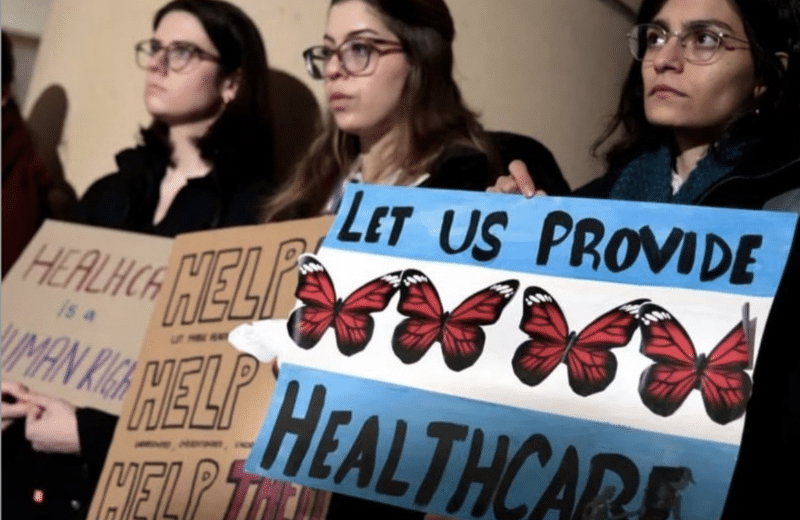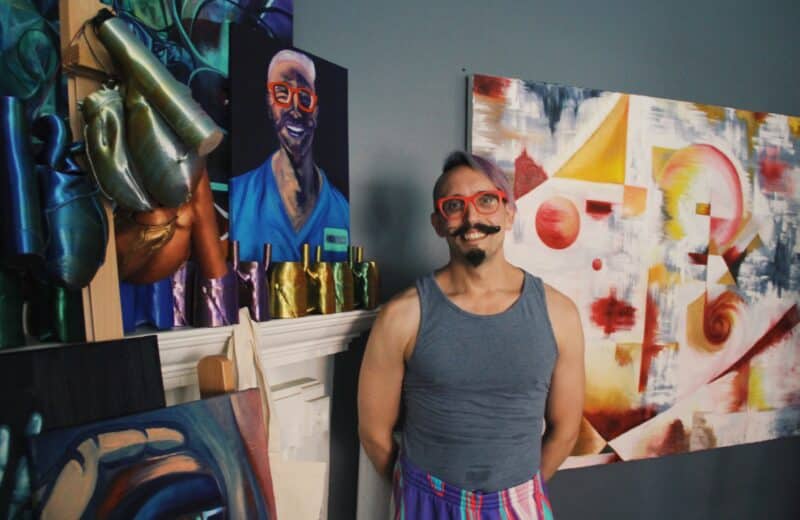The Highland Park 4th of July parade shooting may have faded from the national consciousness, but it hovers like a fog in this North Shore community
A year and a half after the mass shooting in Highland Park, the aftermath still permeates the community. Conversation around the tragedy pierces the chatter of school hallways and downtown sidewalks.
At a District 113 school board meeting, there was talk of installing metal detectors in the schools, after a student brought a gun into Highland Park High School. And a memorial walk, accompanied by a heavy police presence, took the place of the once prototypical Midwest-style 4th of July parade.
“We’re all still extremely affected,” says Joshua Novick, a counselor and former trauma interventionist at Deerfield High School, which, with Highland Park High School, makes up District 113. “But there’s a part of human nature that wants to remember and also one that wants to forget.”
In both Deerfield and Highland Park High Schools, counselors provided talk therapy and trauma-informed mind-body work to students and community members. Five new trauma recovery positions were created in both schools to support students. And a new Facebook group served as a virtual town hall to process the trauma.
Then, as the year went on, the shooting’s impact seemingly began to fade. Forty percent of the trauma recovery positions were cut, including Novick’s. The Facebook group became a lot quieter. The Highland Park community seemed to do what many communities do after a mass shooting: They were shocked, they got angry, they were sad, then they tried to move on.
In some ways, this is normal and appropriate, experts say. Grief doesn’t continually stay in one place. It evolves.
The more troubling pattern is society’s apparent ambivalence toward mass shootings at-large. Our attention clasps on to the next tragedy-du-jour — a form of what psychologists call “psychic numbing” — and in the United States, there are plenty.
At 2019’s meeting of the Society for Medical Decision Making, psychologist and University of Oregon professor Paul Slovic, PhD, told the crowd, “[We] conducted other studies showing that this decline in compassion may begin — ever so slightly — even with two lives. We don’t concentrate our attention as closely on two people at risk. When our attention gets divided, our feelings are lessened, and we may respond less to two people than to one individual. This decline may continue as the number of lives at risk increases.”
Over the past five years, the number of mass shootings on American soil has doubled. We currently relive this uniquely American tragedy at a rate of about one incident every 6.5 days, according to 2023 data from The Associated Press in conjunction with USA Today.
“The July 4th shooting brought the realities of gun violence home,” says Novick, also a Deerfield resident. “It became clear that no one is safe; no community is safe. Gun violence can touch us all.”
Yet, a pattern of learned helplessness — a coping mechanism where we’re unable to enact solutions to difficult, painful problems — is also at play.
Many feel that there’s nothing they can do about such a broad, divisive, and devastating issue: If the president or a senator can’t make a change, how can I?
Engagement is key to escaping this type of purgatory. People can chose to march for gun regulation or find ways to create stronger social bonds within the community.
In Highland Park, as in other communities around the U.S., the grief will remain for a long time. It’s vital that each person finds a way to feel in control and stay engaged.
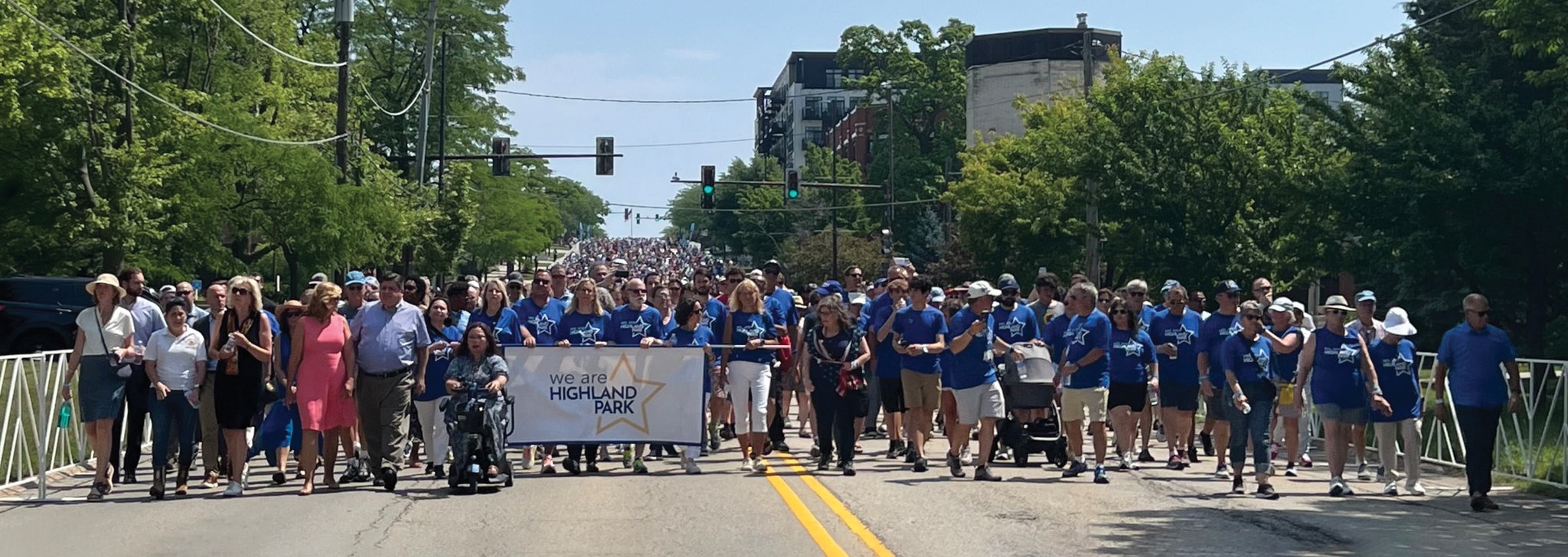
Originally published in the Fall/Winter 2023 print issue.

